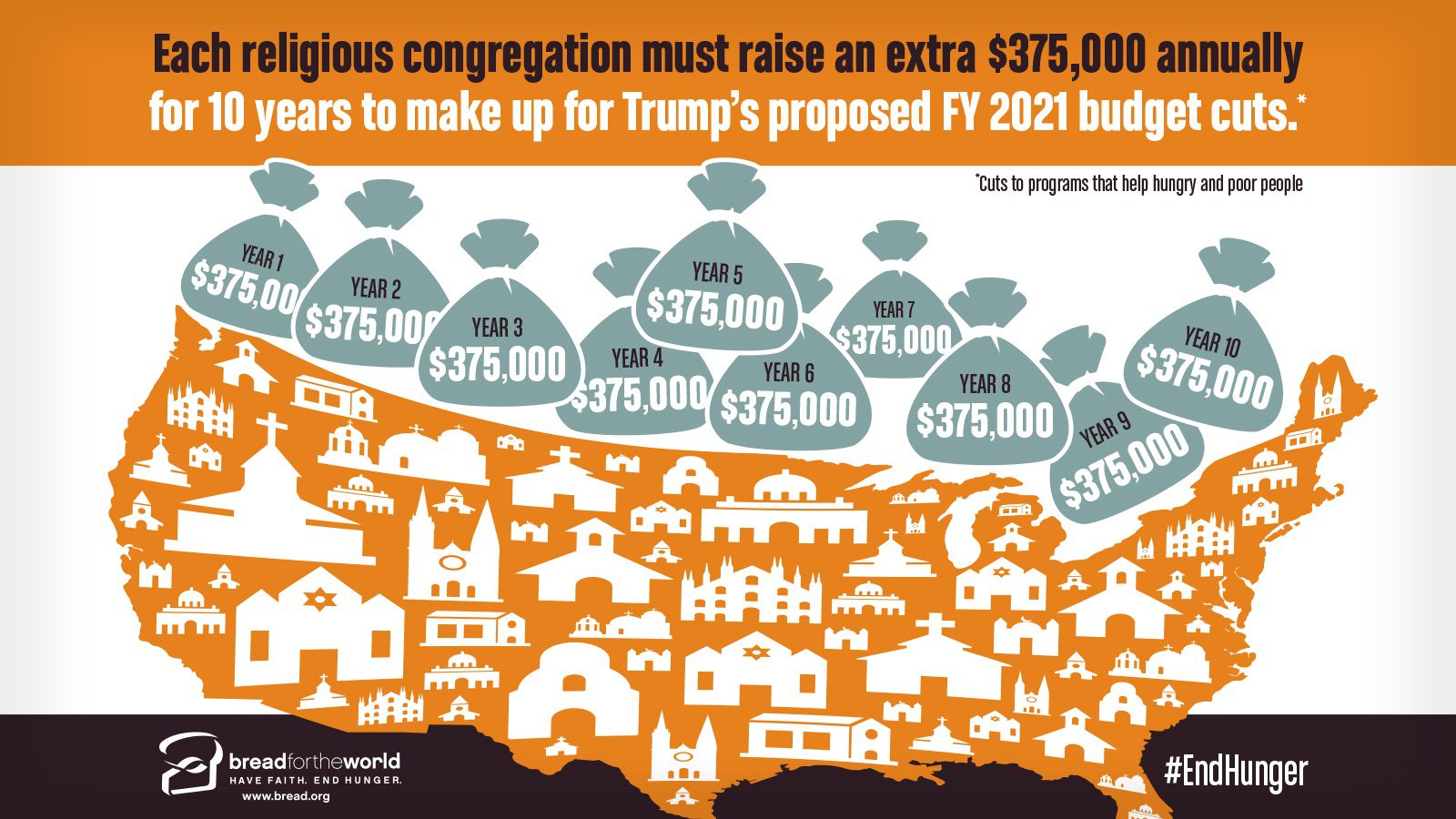Washington, D.C. – Every religious congregation in the United States (churches, mosques, synagogues, temples, etc.) would need to raise at least another $375,000 each year for the next ten years to make up for the proposed cuts to anti-hunger and poverty programs in the White House’s 2021 budget, according to Bread for the World.
“Our country’s 350,000 religious congregations cannot make up for the proposed cuts to programs that help people living in hunger and poverty, including children,” said Rev. David Beckmann, president of Bread for the World. “The amount the congregations would need to raise is larger than many of their annual budgets.”
Critics of federal assistance programs often say it is churches and other religious congregations, not the government, who should be helping people living in hunger and poverty.
“While religious congregations and charities play an important role in helping people who are struggling to make ends meet, federal programs provide the bulk of the assistance,” said Beckmann.
The proposed budget would cut more than $1.3 trillion from domestic and international aid programs over ten years. Domestically, these cuts include $181 billion from the Supplemental Nutrition Assistance Program (SNAP), $1 trillion from Medicaid and Affordable Care Act tax credits, and $1.7 billion from child nutrition programs such as school meals. Internationally, the cuts include $60 million in global nutrition programs, programs that help struggling farmers, and the elimination of the McGovern-Dole international school feeding program.
“A budget is more than a financial statement—it is a statement of our nation’s priorities and values. It should be evaluated on how it treats the most vulnerable people among us,” said Beckmann.
“As a Christian, I believe that God calls on me to care for ‘the least among us’ – be it through charity or advocating for policies and programs that help people living in hunger and poverty,” added Beckmann.



